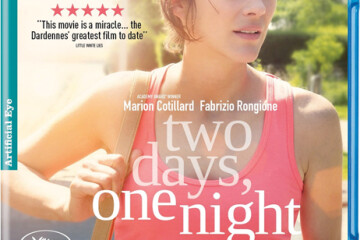Made in Bozeman Band and Films
Chairea, Falling By The Wayside, Encore!
Eric Tuten is one of the frontmen for Chairea, a local band with a throwback emo-punk sound. The group also includes Michael Mckelligott on vocals/guitar, Brock and Clint Forrette on Bass/Vocals, and Connor Lachenbruch on Drums/Vocals. Part of what makes the group stand out, apart from the strength of the band’s sound, is their involvement in other arts, specifically film. Brock Forrette is an alum of MSU’s film program, and Eric is nearly set to graduate as well. Throughout his time at MSU, Eric has used documentary, theater, and a short film to explore his band and their identity.
Falling By The Wayside is his one act play and a one sided musical about a man who can only communicate through song, and everyone else would just rather that he wouldn’t. It’s a series of escalating arguments with his band members and significant other. In a final plea for his girlfriend to stay, the main character, Danny, speaks, implores her to stay, and plays one last song. She remains unconvinced, and Danny says that he was just waiting for her to sing back. Encore!, Eric’s senior thesis film, still stars Danny (played again by bandmate Michael Mckelligott) and explores the root of his inability to communicate normally. The film delves into his mind, and abstracted spaces as the people in his life wrangle and arrest him.
The two stories act as companion pieces, and Eric has one of the most cohesive bodies of work from his class of MSU Film students. I conducted an interview with him about his art and themes.
CA: Do you feel that there’s a broad distinction between what Chairea does and what your one-act play and senior thesis film set out to do? Both the band and the narratives express the frustration associated with alienation, and the struggle of trying to meaningfully connect with other people.
ET: Yeah, I think they are closely related, and part of that could be the way that we write music. I think the goal is the same though. Chairea is a constantly evolving thing. We write off of what we know, and those things change. I think that FBTW (Falling By The Wayside) and Encore! capture different moments in the band’s life. FBTW came right after our second EP, Gumwall. We had started to find our sound, but we weren’t quite where we wanted to be. I think writing FBTW helped us to find that sound that we were looking for. I started writing Encore! right after we recorded demos for our upcoming album, and I think the music in that film is much closer to what we are now, but that will probably change too.
CA: When you say that goals of Chairea and the stories are the same, what exactly is that goal? To invoke empathy and understanding, to entertain? What ideas are you hoping to plant in an audience?
ET: Overall, yes, but I think my main goal, at least with the film and play is to make people think. I always want people to dwell on the words, and let them find their own meaning in them. That is how music works with me. I can hear a line in a song, and that line might resonate with me. I’ve attached a personal meaning to it, and when I hear it, say two years from when I first heard it it stirs the same feeling in me. Sometimes it stirs a different meaning, but it still has an affect.
CA: When I watched both I felt that they were about the difficulty of expressing yourself honestly and sincerely when everyone else seems to communicate in an entirely different way. The struggles of being an artist, and how alienating it can be, in other words. Is that reading intentional, and if so, how do you think growing up in sparsely populated Montana has contributed to the themes of the band and the stories?
ET: Yeah, and I’m really glad you got it, because it didn’t seem like a lot of people did. I think Encore! specifically is a film for artists. Falling by the Wayside is a little more accessible, and it has it’s funny, cheesy moments, but Encore! throws you completely into the mind of the character. Every character Danny interacts with, and every action he endures represents a different part of him. His fear, his love, his weakness, and his strengths. In the last scene of the film, Danny almost acts as a two way mirror for me and the audience. He is saying the words, but that scene is us (Michael, Connor, and I), talking to the audience. I think that growing up in Montana may have made me feel alienated. I have only met a few people that are as passionate about the same kind of music as I am. Although, I don’t know if it was Montana, or the small rural town that I grew up in. I think those feelings of alienation can come anywhere.
CA: Your band consists of a diverse crew, especially with you and Brock being so involved with film. So now that you’ve nearly graduated do you see yourself continuing with film or with the band. Which takes priority, or will they remain inseparable for you?
ET: After graduation my main focus is Chairea. I think right now we are all committed to see it through. I still love making films, but if one has to have priority, it’s got to be Chairea. I want to make my living performing with my best friends. I plan on writing a full length rock opera someday, and I’m hoping that the work we do in Chairea will pay off so that I can feasibly make that happen. Ever since we started the band though, after Connor and our then bassist Clint (Brock’s brother) came in, Chairea has always been the absolute plan for me.




